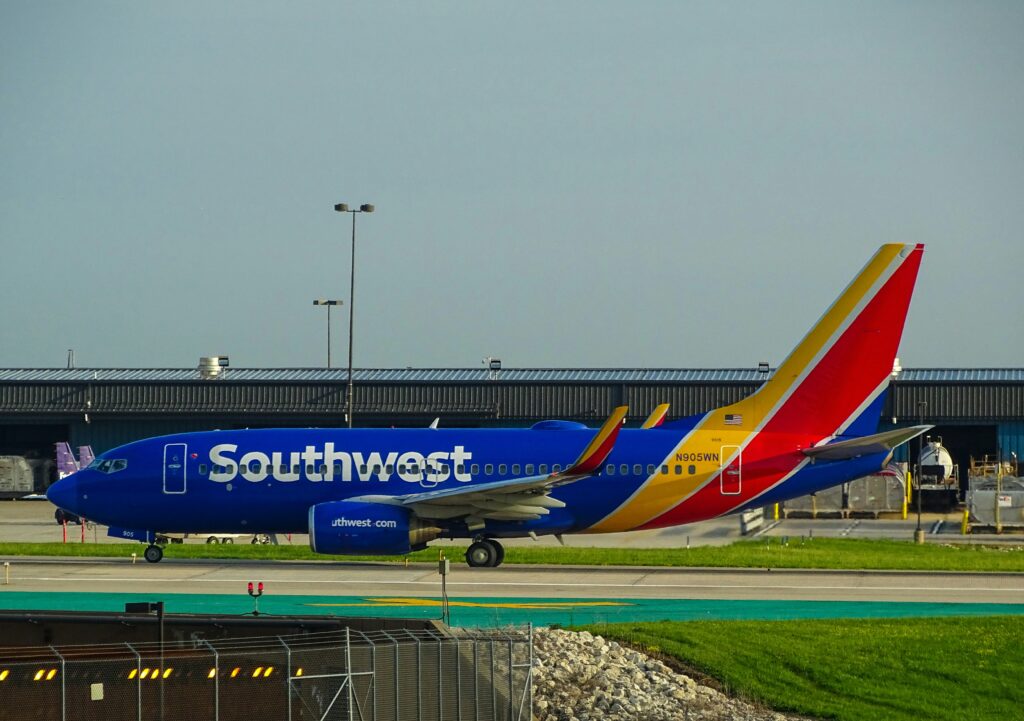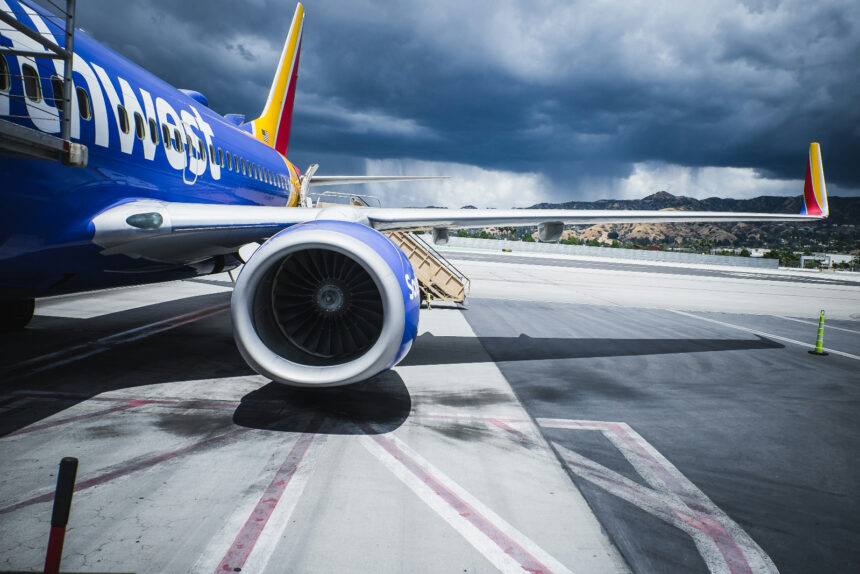Southwest Airlines faces operational hurdles as it revises its aircraft acquisition plans due to ongoing challenges at Boeing, their sole aircraft provider. The airline disclosed to the Securities and Exchange Commission that Boeing has scaled back its delivery of the 737-8 model to 46 jets in 2024, a significant drop from the 79 initially projected. This adjustment stems from Boeing’s persistent production and quality control issues, prompting Southwest to recalibrate its capacity and scheduling strategies, particularly for the latter half of 2024. This recalibration is anticipated to diminish Southwest’s year-over-year capacity plans by at least one percentage point for the full year of 2024.
The impact of these developments was felt in the stock market, with Southwest shares plunging 15% to $28.85, marking their steepest decline since March 12, 2020. This downturn positioned Southwest as the day’s most significant underperformer in the S&P 500, which otherwise saw a 0.7% uptick.
Boeing’s stock, too, has suffered, dropping 29% within the year, amid a series of setbacks. Notably, a 737 MAX 9 operated by Alaska Air Group was forced to make an emergency landing in January after a critical component malfunctioned. This incident led to a temporary grounding of the aircraft model. Further complicating matters, the Federal Aviation Administration revealed instances of non-compliance by Boeing with established manufacturing quality standards. The situation escalated with the U.S. Justice Department initiating a criminal investigation into the Alaska Air incident, as reported by The Wall Street Journal.
In anticipation of the J.P. Morgan Industrials Conference, Alaska Air acknowledged in a regulatory filing the financial toll of the door malfunction incident and subsequent grounding, estimating at least a $150 million hit to its profitability. The airline confirmed partial compensation from Boeing, to be reflected in its first-quarter earnings, and noted a remaining impact of approximately $0.30 per share due to the grounding.
Despite these challenges, Alaska Air has successfully reintegrated its fleet into service and anticipates surpassing its initial performance expectations for the first quarter.

American Airlines also adjusted its first-quarter financial outlook, forecasting an adjusted per-share loss at the lower end of its previous 15 to 35 cents estimate, attributing this to a significant rise in fuel costs. On the day of the announcement, American Airlines’ stock experienced a 4.4% decline, while Alaska Air Group’s shares saw a modest 1% increase.
These developments underscore the broader implications of Boeing’s ongoing challenges for the aviation industry, affecting airline operations, financial projections, and stock market performance.












